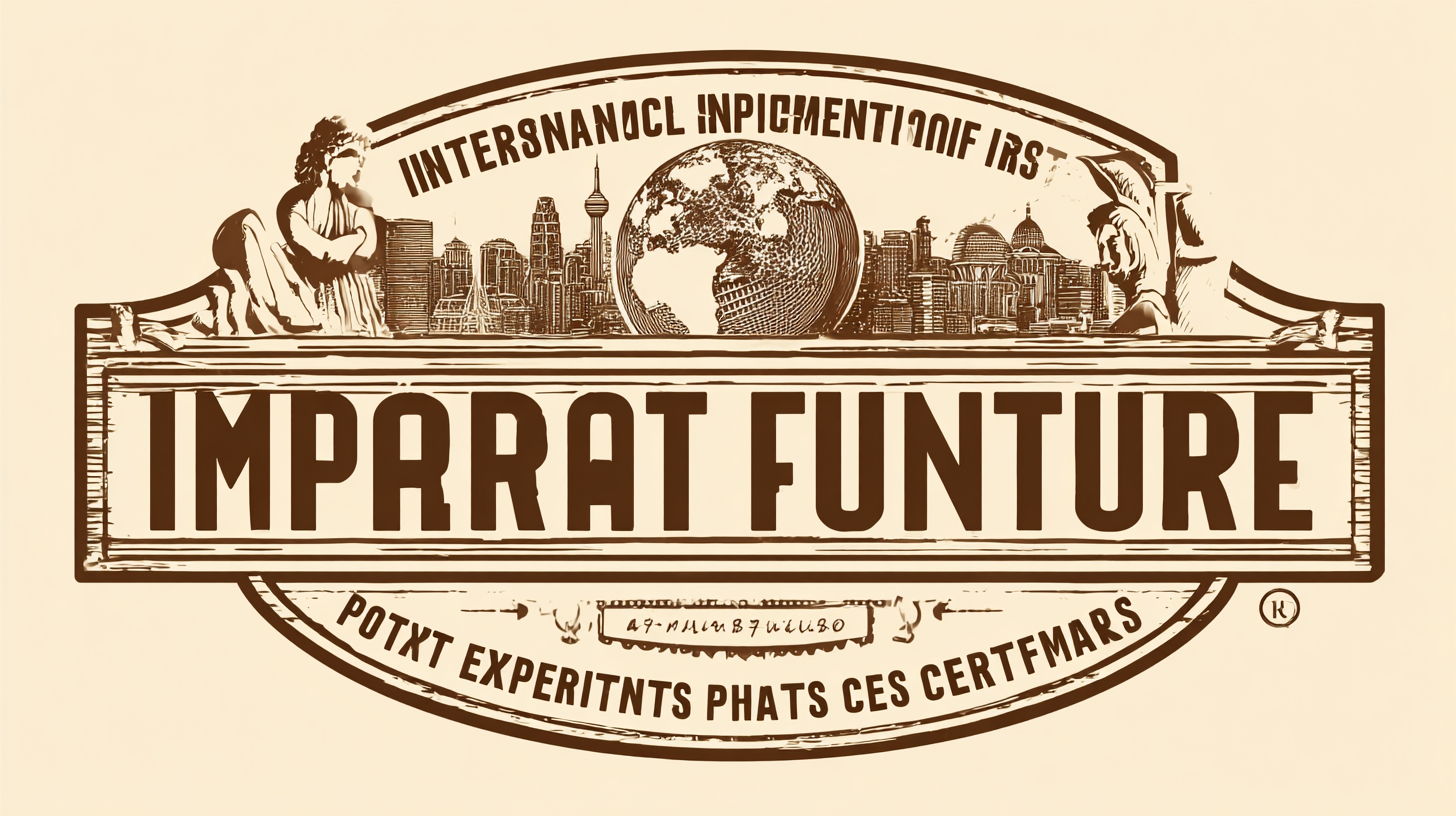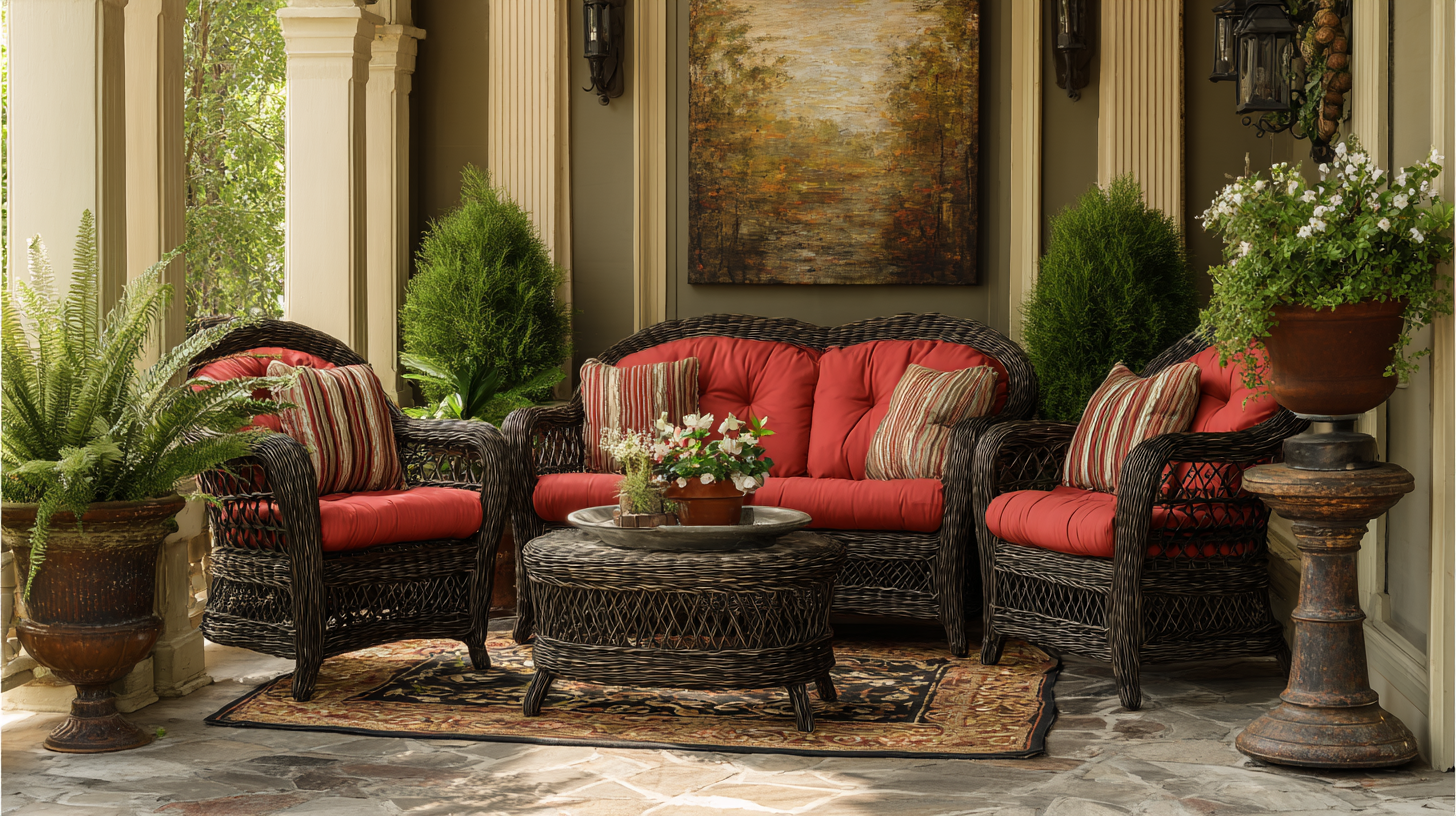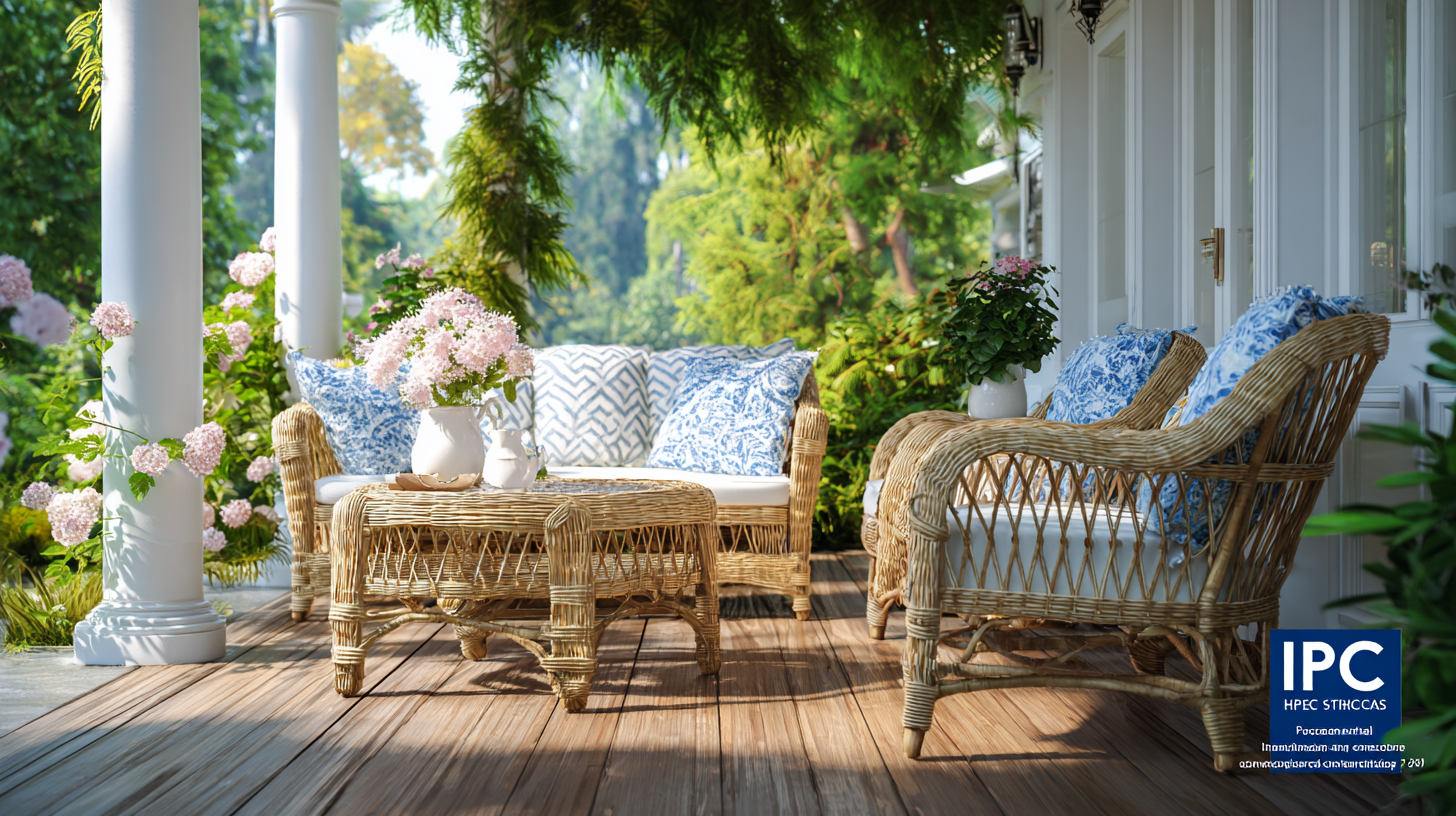Navigating International Import and Export Certifications for the Best Porch Furniture
In the dynamic world of international trade, navigating certifications for imported and exported products is crucial, particularly for niche markets such as porch furniture. According to a recent market analysis by Grand View Research, the global outdoor furniture market, which includes porch furniture, is projected to reach $30.5 billion by 2025, driven by increasing consumer demand for durable and stylish outdoor living options. Ensuring compliance with various import and export certifications, such as ISO standards and safety regulations, not only allows manufacturers and retailers to gain a competitive edge but also fosters consumer trust. Understanding the intricate technical specifications and certification processes can significantly enhance product quality and marketability. In this blog, we will delve into the essential technical parameters and how-to strategies for successfully navigating these international certification requirements in the porch furniture sector.

Understanding the Importance of International Certifications for Furniture Quality
When it comes to purchasing porch furniture, understanding international certifications is crucial for discerning quality and ensuring safety. Certifications such as ISO (International Organization for Standardization) and FSC (Forest Stewardship Council) guarantee that the materials used in the furniture meet global standards for durability and environmental sustainability. These labels not only reflect the manufacturer's commitment to high-quality production practices but also provide peace of mind for consumers looking for long-lasting outdoor solutions.
Moreover, international certifications can significantly influence the furniture's performance and maintenance requirements. For instance, furniture that meets certain fire safety standards or weather resistance certifications can withstand varying climatic conditions, making them a worthy investment. Additionally, these certifications often include guidelines on using non-toxic materials, which is essential for the health and safety of families, especially those with children or pets. By prioritizing internationally certified porch furniture, buyers ensure they are making environmentally conscious choices that do not compromise on quality or safety.

Key Certifications to Look for When Importing Porch Furniture from China
When importing porch furniture from China, understanding the key certifications can significantly impact the quality and safety of your purchases. One of the most important certifications to look for is the ISO 9001 certification, which ensures that the manufacturer adheres to international quality management standards. This certification reflects the company's commitment to producing high-quality products, thus giving you confidence that the furniture will meet your expectations for durability and performance.
Another crucial certification is the CE mark, particularly for outdoor furniture that may be exposed to various weather conditions. This mark indicates compliance with European safety standards, meaning the furniture has been tested for safety and reliability. Additionally, certifications such as SGS or TUV can further assure buyers of the product's quality, as these organizations conduct rigorous testing and inspections. By prioritizing these certifications during the import process, you can ensure that the porch furniture not only enhances your outdoor space but also stands the test of time.
The Role of Quality Control in International Furniture Trade
In the dynamic world of international furniture trade, quality control plays a critical role in ensuring that products meet both safety standards and consumer expectations. As importers and exporters navigate the complexities of certification requirements, maintaining high standards becomes essential for sustaining market reputation and customer satisfaction. One of the primary components of quality control involves rigorous testing and inspection of materials and craftsmanship to prevent defects that could jeopardize sales and satisfaction.
**Tips for Effective Quality Control in Furniture Trade:**
1. **Establish Clear Standards:** Before beginning any trade, clearly outline quality standards that adhere to both local regulations and international benchmarks. This establishes a baseline for all products being manufactured or sourced.
2. **Regular Audits:** Conduct regular audits of suppliers and manufacturers to monitor compliance with these standards. By doing so, you can identify any potential issues early on and maintain the integrity of your product line.
3. **Customer Feedback Loop:** Create a system for collecting and analyzing customer feedback on furniture quality. This insight can guide improvements in design and materials, ultimately enhancing your offerings and market competitiveness.
By prioritizing robust quality control measures, businesses can navigate the complexities of international certifications while ensuring that their furniture meets the highest standards for consumers worldwide.
Navigating International Import and Export Certifications for the Best Porch Furniture
This chart displays the number of certifications required for importing and exporting porch furniture across different regions in 2023. Understanding these requirements is crucial for ensuring quality control in furniture trade.
Navigating Regulatory Compliance: What Importers Need to Know
When importing porch furniture, understanding regulatory compliance is vital to ensuring a smooth process. According to a 2022 report by the International Trade Administration, 45% of importers experience significant delays due to non-compliance with certification requirements. These certifications often vary by country, making it essential for importers to research and understand the specific standards applicable to their products. Common certifications include safety standards that relate to materials used and sustainability requirements, as many countries are increasingly focusing on eco-friendly imports.
Furthermore, the Global Trade Management Survey indicated that 63% of companies reported plans to enhance their compliance processes to adapt to evolving regulations. This shift is particularly relevant as the porch furniture sector faces scrutiny over materials and manufacturing practices. Compliance not only protects businesses from potential fines but also builds consumer trust, as more buyers seek out sustainably sourced and certified products. For importers, staying ahead of these regulatory changes is crucial for maintaining competitive advantages in a rapidly shifting marketplace.

Building Trust: How Certifications Influence Consumer Choices in Porch Furniture
When consumers look for porch furniture, they often encounter a plethora of options that can be overwhelming. One essential factor influencing their purchasing decisions is certifications. These certifications act as a reliable standard, assuring buyers of the quality, safety, and sustainability of the products they are considering. When a piece of porch furniture is marked with a certification, it instantly builds trust, signaling that the product has undergone rigorous testing and meets industry regulations. This assurance is particularly important for outdoor furniture, which must withstand various weather conditions while maintaining structural integrity.
Moreover, certifications play a pivotal role in guiding consumers towards environmentally friendly choices. With increasing awareness of sustainability, many shoppers are keen on selecting products that not only serve their aesthetic needs but also align with their values. Certifications that emphasize eco-friendliness or responsible sourcing provide consumers with the confidence that their porch furniture is produced with minimal environmental impact. As a result, certifications have become a key differentiator in a competitive market, influencing consumers to choose brands that prioritize safety, quality, and sustainability.
